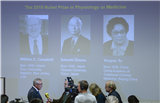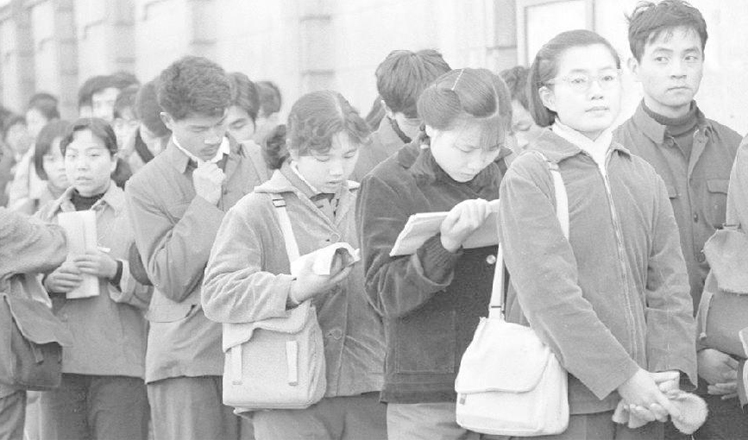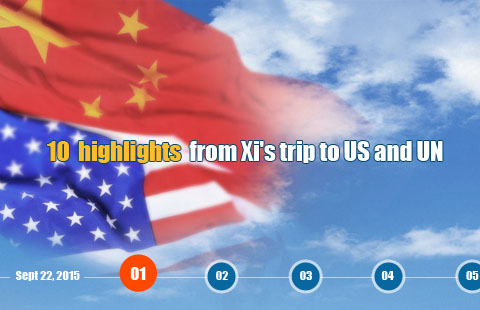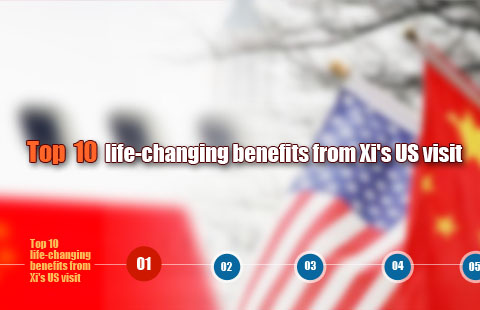Experts see China in TPP one day
Updated: 2015-10-06 11:01
By Paul Welitzkin In New York(China Daily USA)
|
|||||||||
Observers believe that the proposed Trans-Pacific Partnership pact between the United States and 11 other countries will create a level playing field for businesses in the technology-driven economy of the 21st century and that China may seek to become a member in a few years.
After years of talks, negotiators announced an agreement Monday that is designed to encourage trade between countries that account for about 40 percent of the world's economy:
Australia, Brunei, Canada, Chile, Japan, Malaysia, Mexico, New Zealand, Peru, Singapore, the US and Vietnam.
Terms of the agreement must be approved by each of the countries. In the US, it faces an uphill battle for Congressional approval.
TPP will implement labor and environmental standards and include provisions on corporations' intellectual property to break down or eliminate trade barriers among the member nations. The Obama administration also sees TPP as a measure that will expand US influence in the fast growing Asia-Pacific region.
"It would be misguided to view the TPP as a foreign-policy tool," Melanie Hart, director of China Policy at the Center for American Progress, a Washington think tank, told China Daily in an e-mail. "The biggest TPP beneficiaries are the businesses in participating countries that need a high-standard regulatory environment and level playing field."
The White House said the agreement will eliminate tariffs on all made-in-America manufactured goods exported to TPP countries.
"This partnership levels the playing field for our farmers, ranchers, and manufacturers by eliminating more than 18,000 taxes that various countries put on our products," President Barack Obama said in a statement. "It includes the strongest commitments on labor and the environment of any trade agreement in history, and those commitments are enforceable, unlike in past agreements."
David Dollar, a senior fellow at the Brookings Institution's John L Thornton China Center in Washington, expects Vietnam to benefit from the TPP.
"Vietnam will be the big winner relative to the size of its economy. Its additional trade will mostly be diverted from China, so China will lose from TPP, but the loss will not be great because China is so much bigger than Vietnam," he wrote in an e-mail.
TPP will not have a direct effect on China but it will have an indirect bearing on talks between Beijing and the US on a bilateral investment treaty, noted Gary Hufbauer, a senior fellow at the Peterson Institute for International Economics in Washington.
'The US will be reluctant to sign a treaty that contains anything significantly different from the investment section in the TPP,' Hufbauer said in an interview. He also said that TPP doesn't include a local content requirement for computer servers providing Internet services. 'This will be a benchmark for China,' Hufbauser added.
The TPP has been set up to allow other nations to join if they adhere to the standards. China may be interested in joining TPP in a few years by lobbying European and other US allies to accept China as a market economy, Jing Huang, professor with the National University of Singapore told The Wall Street Journal. 'I don't think they want to join very soon, it's not realistic,' he said. 'But their view is, 'We'll get in sooner or later.' China is keeping its options open,' he added.
'Joining TPP would help China with its domestic reform program and the overall benefits from TPP would increase greatly if China joined. So the ball is now in China's court,' said Dollar.
paulwelitzkin@chinadailyusa.com
(China Daily USA 10/06/2015 page1)
- Russian warplanes hit IS targets in Syria
- Senior US envoy to visit Japan, S Korea, China
- Russia, US agree to cooperate in solving Syria crisis: Russian FM
- Iranian President calls Iran deal victory over war
- LatAm experts praise Xi on yuan, globalization
- Evidence found of summertime water flows on Mars: study

 China wins first Nobel in medicine
China wins first Nobel in medicine-
 Saving Chinese folk songs
Saving Chinese folk songs 
 Candlelight vigil for Oregon shooting victims
Candlelight vigil for Oregon shooting victims
 Chinese people's pursuits in different eras
Chinese people's pursuits in different eras
 Ten highlights from Xi's trip to US and UN
Ten highlights from Xi's trip to US and UN
 Top 10 life-changing benefits from Xi's US visit
Top 10 life-changing benefits from Xi's US visit-
 Highlights of President Xi's speeches at UN
Highlights of President Xi's speeches at UN -
 The president's historic journey to the west
The president's historic journey to the west
Most Viewed
Editor's Picks

|

|

|

|

|

|
Today's Top News
Tu first Chinese to win Nobel Prize in Medicine
Huntsman says Sino-US relationship needs common goals
Xi pledges $2 billion to help developing countries
Young people from US look forward to Xi's state visit: Survey
US to accept more refugees than planned
Li calls on State-owned firms to tap more global markets
Apple's iOS App Store suffers first major attack
Japan enacts new security laws to overturn postwar pacifism
US Weekly

|

|








